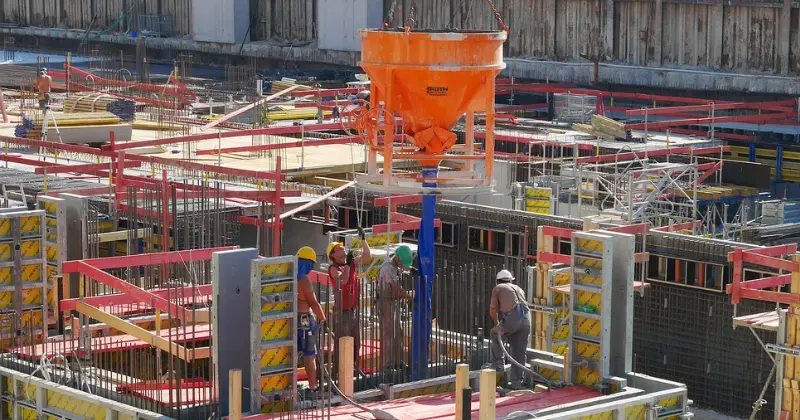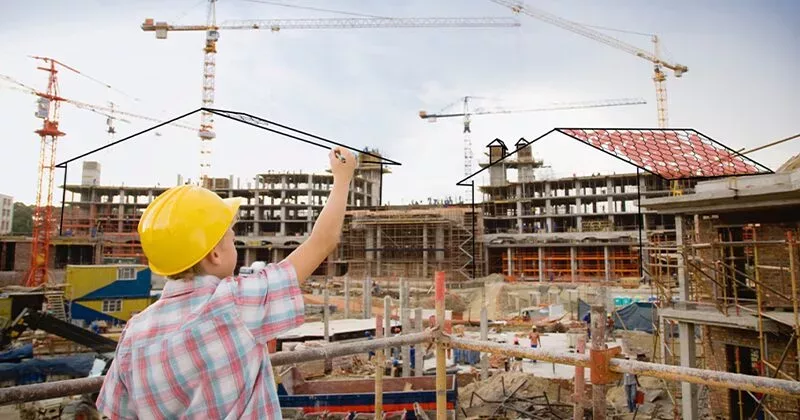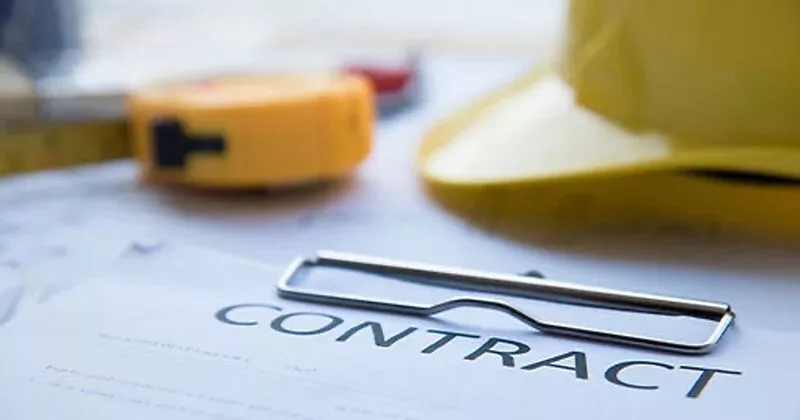11 mins read
Women in Construction: An Industry Outlook in 2025

Construction is a vital part of our contemporary world, shaping the metropolitan skylines and critical infrastructure that underpin our daily lives. However, beneath the clamor of construction sites is a narrative of ignored skill and unfulfilled potential – in particular the story of women in construction.
This traditionally male-dominated sector has long faced systematic barriers to women’s involvement and advancement. Despite the fact that females make up over half of the global workforce, they account for a mere 9% to 12% of construction jobs, underscoring a gender imbalance that has been around for a long time.
Yet, in spite of these statistics, a powerful narrative of resilience and change is emerging. In recent years, deliberate attempts to reduce gender prejudice and promote diversity have started to transform the sector. Around the world, we see efforts to recruit and retain female talent, and people are starting to recognize the economic and social benefits of a diverse workforce. This is all starting to slowly but surely change the status quo.
This Women in Construction Week – celebrated from March 2 to March 8 every year – we explore the challenges, opportunities, and tremendous influence of women in the construction business. Let’s dive in!
Women in Construction Statistics: The Current State of the Industry
According to research by McKinsey & Company, around 13% of construction companies now have females in construction management positions, with participation in skilled trades having increased by 20% over the last decade. The same study indicates that teams with a mix of genders are 25% more likely to outperform their peers in innovation and output.
The McKinsey study also found that females now make up 29% of C-suite positions, compared with just 17% in 2015. Progress has, however, been much slower at the entry and manager levels. The chart below illustrates women’s representation in corporate roles by percentage of employees:

Various studies and reports from reputable organizations have highlighted the significant economic benefits of closing the gender gaps. This includes the International Monetary Fund (IMF), that emphasizes that equal workforce participation by females enriches the talent pool, fosters inclusive economic growth, and boosts productivity and innovation. Similarly, the World Bank’s Gender Strategy for 2024 to 2030 emphasizes how essential accelerating gender equality is for economic development and poverty reduction. The consensus is clear: closing gender gaps in the workforce can lead to substantial economic gains and enhanced construction productivity.
Here are some other interesting statistics about women in construction:
- In the past 10 years, the number of women in construction has increased by over 50%. This meant that nearly half a million women was added to the business during this period.
- The gender pay gap in construction is narrower than in many other industries. A woman in construction earns about 94.3% of what their male counterparts make, compared to 83% across all industries.
- In the United Kingdom, women represent about 14.7% of the construction sector, a positive percentage compared to the 3% globally.
- In 2023, women accounted for 4.7% of all active construction apprentices, reflecting a 55% growth since 2018.
- In the United States, the representation of women in construction varies by state. For instance, Washington, D.C., has the highest concentration, with women making up 17.6% of its construction workforce, while Delaware has one of the lowest, at 6.8%.
What Challenges Do Women in Construction Face?
Despite the growth in numbers, women in the construction sector often face significant challenges that prevent them from fully participating and growing professionally in the industry. Among the most significant barriers are gender discrimination and workplace culture. According to a 2023 report from the Institute for Women’s Policy Research (IWPR), 26.5% of tradeswomen reported significant levels of workplace harassment or discrimination. In countries like Bolivia, female construction workers face widespread sexism, abuse, and unequal pay, earning 38% less than their male counterparts. These barriers often lead to high turnover rates among female workers in the construction sector.
Construction sites have also traditionally been male dominated, creating environments in which women battle for acceptance, equal opportunities, and fair treatment.
Another significant concern is a lack of representation in leadership positions and skilled professions. For example, in the United States, females account for around 14% of the construction workforce, but just about 4% work on-site. Women are underrepresented in hands-on and decision-making jobs, which restricts mentoring opportunities and professional progress. Furthermore, poor workplace rules, such as a lack of appropriate safety equipment tailored for females and insufficient maternity leave alternatives, continue to create barriers for long-term career growth.
Despite these hurdles, organizations such as the National Association of Women in Construction (NAWIC) are actively working to support and advocate for women in the sector, offering resources for career growth and development.
Real Story of a Woman in Construction
Marjorie Subramoney is one of the inspiring stories of females in construction management, working as a renowned Customer Success Senior Consultant in Estimating and Project Controls at RIB Software. As a company that celebrates diversity in a traditionally male-dominated field, RIB Software celebrates the contributions of women like Marjorie, who have shattered stereotypes and redefined success in the industry.
Marjorie took her first steps on a construction site as an administrator fifteen years ago. With little experience and plenty of challenges ahead, she quickly learned that resilience and hard work would be her strongest assets. “In the early days, I often felt overlooked because of my lack of experience,” she recalls. “But I was determined to prove myself and show that I belonged in this industry.”
Her efforts paid off, as she advanced through the ranks, understanding the intricacies of construction and project administration. The true test, however, came when she faced the ultimate decision: career or family. For many women in construction, this dilemma usually pushes them to make painful decisions, but RIB Software presented Marjorie with a rare balance. “They provided me with the flexibility I needed to balance my professional and personal life. This support was necessary in my journey, especially when I was promoted, three years after joining the company.”
While the business has made progress towards inclusiveness, Marjorie emphasizes an ongoing challenge, namely retention. Many women quit the industry when their family responsibilities become too much. But she is certain that no woman should have to choose between parenting and a profession. “It’s about creating an environment where women can thrive without having to choose between their career and their family.”
Beyond flexibility, Marjorie sees a future in which more women hold leadership positions, laying the groundwork for a culture of equality and respect. She fights for key industry improvements such as wage parity, safe and inclusive workplaces, ongoing professional development, and clear career growth prospects. “I need to note that within our team of seven members, of which two of us are women, we are a thriving team, and all have equal respect for each other,” she says.
Marjorie’s advice to young women pursuing a career in construction is simple: believe in yourself, be proactive, and capitalize on your skills and abilities. “Be confident in your abilities and don’t be afraid to speak up,” she advises. She also highlights the need to establish boundaries, get help, and striking a work-life balance. “Don’t hesitate to set boundaries and take time for yourself,” Marjorie says.
Reflecting on her path, Marjorie recognizes the modest but steady progress achieved by females in construction. “More young women are taking advantage of the opportunities available to them and making great strides. However, when family responsibilities arise, many women tend to leave the industry for options that align better with family life. Retaining women in construction is where the challenge lies.”
Events and Forums for Women in Construction
For Women in Construction Week, there are various events and forums planned around the world. These events provide valuable opportunities for construction networking, professional development, and celebrating the achievements of women in the industry.
1. Women in Construction Summit 2025
- Date: April 29-May 1
- Location: Melbourne, Australia
- Description: This annual event focuses on real-life examples of how people and companies have successfully driven diversity. It features a host of inspirational speakers, including C-suite executives, managers, and leaders in trade roles.
2. Carolinas AGC Women in Construction Week Celebrations
- Dates: March 2–8, 2025
- Locations: Multiple events across Charlotte, Raleigh, Charleston, and Columbia in the USA
- Description: In partnership with local NAWIC chapters and Women of Asphalt, Carolinas AGC is hosting a series of events including job site tours, networking luncheons, and engaging presentations to celebrate and connect with women in the construction industry.
3. Women in Construction Summit 2025
- Date: Monday, March 3, 2025
- Location: Westin Hotel, Richmond, Virginia, USA
- Description: Organized by the Metropolitan Business League, this summit aims to empower women in construction and real estate development by fostering connections with key decision-makers, providing access to resources, and supporting career and business growth. The event includes panel discussions on topics such as entrepreneurial growth, partnering strategies, and public-private synergies.
4. 27th Annual Women in Construction Week Celebration
- Date: Tuesday, March 4, 2025
- Location: Clayton House by Wedgewood, Greater Phoenix, Arizona, USA
- Description: Hosted by the NAWIC Greater Phoenix Chapter 98, this event celebrates the achievements of women in the construction business. The gathering includes networking opportunities, keynote speakers, and discussions focused on empowering women in construction.
5. Panel: Constructing Confidence – The Role of Mentorship for Women
- Date: March 5
- Location: Michigan, USA
- Description: This thought-provoking panel discussion explores the vital role that mentorship plays in empowering women in the construction industry. It features perspectives from mentors, mentees, and leaders and aims to highlight ways that mentorship fosters growth, builds confidence, and supports women in navigating an industry which has been traditionally dominated by men.
6. Women in Construction Week 2025: Build Her Up
- Date: Thursday, March 6, 2025
- Location: Perkins & Will, Washington DC, USA
- Description: Hosted by Turner Construction Company and Perkins & Will, this event focuses on empowering women in the construction sector through networking opportunities, panel discussions, and workshops aimed at professional development.
Conclusion: The Future of Women in the Construction Industry
The construction sector is about to undergo a shift that truly recognizes women’s strength and potential. While obstacles remain, advancements in gender diversity, leadership representation, and worker inclusion point to a bright future. The sustained success of women like Marjorie Subramoney demonstrates how tenacity, support, and progressive workplace regulations can reshape what it means to excel in construction.
As organizations like RIB Software promote equity and advocate for structural change, the aim is that more women will not only join the sector, but also remain, develop, and lead. The future of construction is more than simply constructing things; it is about creating a sector in which talent knows no gender, possibilities are limitless, and everyone has the opportunity to make their mark.
Gender equality is one of RIB Software’s core values. We not only acknowledge the successes of our female employees, but we also actively push to make the industry more inclusive and equal. Women like Marjorie are not just affecting their careers; they are changing the future of construction, one success story at a time.
Want to elevate your construction game? Get your free demo of RIB’s toolkit today!
Most Recent
11 mins read
11 mins read
10 mins read
10 mins read
Blog Categories

Ebook











